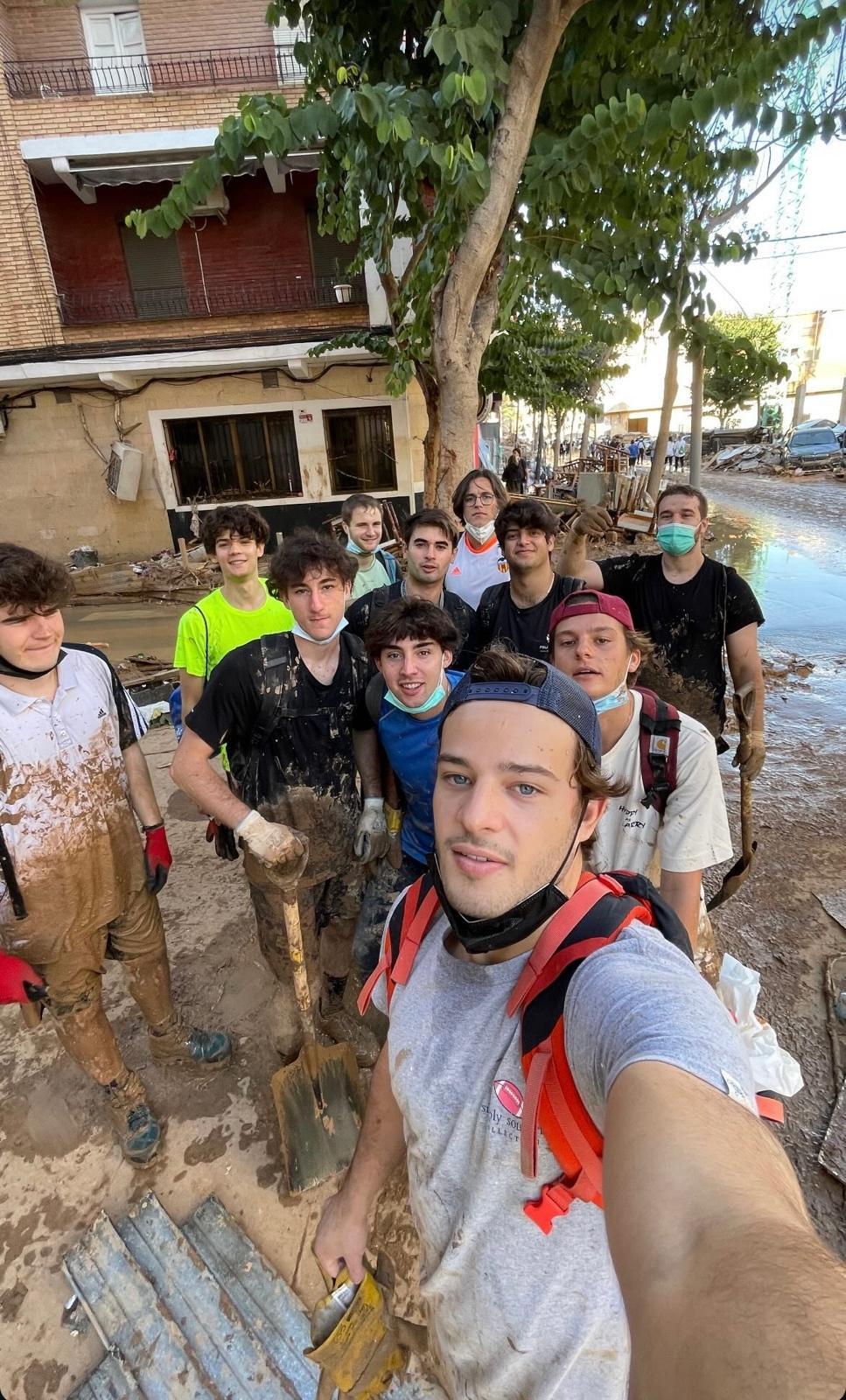Generation Snowflake? I couldn’t believe what I saw young people doing in the Valencia floods
The young in Spain are often called the ‘glass generation’ as they’re so fragile. But they have proved themselves unbreakable and put us all to shame, writes Catherine Dolan – a Brit living in the region with her Spanish husband and four daughters

From day one of the catastrophic floods in Valencia, unlikely allies have emerged as our saviours.
It has been Gen Z and Gen Alpha who have put themselves on the frontline: shifting debris, clearing out garages and putting themselves in danger by unearthing bodies buried in the mud.
Just as in the UK, Spain’s younger population are all too often denigrated by their elders as “la generación de crístal” – the glass generation – who would break in a disaster. They’d all be too busy glued to their phones and unable to do anything without a TikTok instructional video, we smirk and mutter.
But, as it turns out, the older generations are completely wrong. I’ve witnessed it first hand – it’s the young Valencians who have proved themselves to be the heroes and heroines of the flood which hit the area last week, causing death and devastation. Generation Snowflake? I’ve been bowled over by the way they’ve conducted themselves both during – and after – the disaster.
Teenagers and those in their early twenties have particularly stepped up, blowing apart the unfair impression that they “can’t handle hard work”. I’ve seen them organising themselves into groups, equipping themselves with shovels, boots and gloves – and rising early day after day to make their way, mostly on foot, to help with the clean-up operation to support their fellow Valencians.
After spending Tuesday helping a couple in Picanya, my eldest daughter, Sofía, 20, was noticeably affected by their story. She told me how the pair had spent a distraught hour not knowing if their 14-year-old son was dead or alive, because the flood hit while he was attending an English class in a different town.
Sofía described how the ground-floor bedroom of the couple’s son was so much like her own little sister’s: “He had the same Ikea furniture, but with things in blue instead of pink, but it was all completely destroyed. He loved English, and the family were doing all they could to save his treasured collection of Harry Potter books that he’d bought with his pocket money.”

They might be more used to seeing scenes of upturned cars and broken buildings when they’re gaming, but they are facing the physical reality of the situation with admirable strength. They’re moving furniture, shovelling sticky, stinking mud. Death is everywhere.
My 17-year-old niece, Violeta, who was volunteering with a group of friends in Paiporta (where the King and Queen were pelted with mud on their visit this week) described hearing a police officer come out of a garage and turn to his colleague: “Madre mia! It’s full of bodies in there!”
With the number of corpses, both human and animal, which have yet to be recovered from the stagnant waters, the putrid smell is now intense and the risk of infection is real. The “glass generation” are putting themselves at risk for their fellow human beings, without a second thought, doing the job which the government has been too slow to implement.
The initial response to the disaster was slow, calamitous and chaotic; only in recent days have the army and fire service arrived to put some order into proceedings. However, this also means keeping keen volunteers away from the affected areas.
My nephew Rodrigo, 21, and his group of university friends have been to a different town each day. On Wednesday they were headed to Massanassa, and decided to try their luck anyway, ignoring all the restrictions. He later sent me a message: “We got lucky with a kind police officer who let us through.” But he finds the controls frustrating: “One day we cleaned out two old ladies’ houses between us. The authorities would have taken weeks.”
These young Valencians have grown up being told by their grandparents about the historic Gran Riada (Great Flood) of 1957, which engulfed the centre of Valencia, claimed 81 lives, and was the reason the Túria River was diverted to the south of the city. These youngsters never imagined that they would face a catastrophe of equal measure, let alone a greater one.
After hours of work, scraping mud out of homes, dumping ruined electrical items in the street or distributing essential supplies, they return to their homes, caked in mud, their limbs aching, shocked at the normality that still exists on the other side of the river.
I am immensely proud of my own daughters, their cousins, their friends, their classmates and all the others who needed no cajoling to volunteer. If anything, it was difficult to hold them back. They’ve even sacrificed their education, with public universities cancelling classes, and students at private ones refusing to attend classes so they can volunteer. “We are the ones who are most able to help; we are physically better prepared than anyone to do the work that needs to be done, so allow us to do it,” one third-year veterinary student told me.
You can be sure that these young Valencians will be back, day after day, for as long as they are able, and for as long as they are needed.
Catherine Dolan is a British journalist who moved to Spain 20 years ago. She is married to a Valencian and they have four daughters






Join our commenting forum
Join thought-provoking conversations, follow other Independent readers and see their replies
Comments